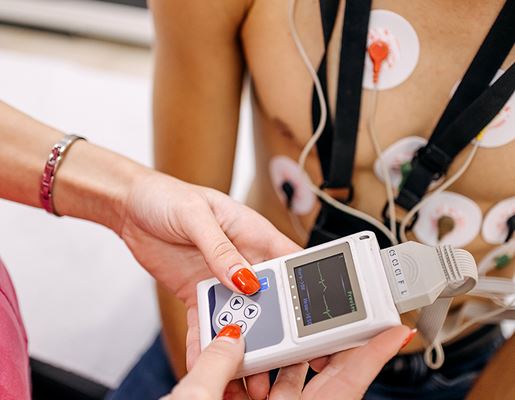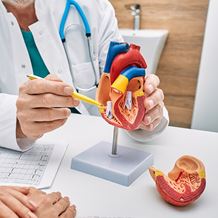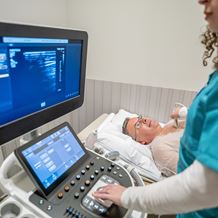
- Home
- Services
- Cardiac Services
- Conditions
- Adult Congenital Heart Disease
What is Adult congenital heart disease?
Adult congenital heart disease is a general term for any type of heart condition present from birth, that affects how well your heart functions. There are many different types of congenital heart defects, and they can range in severity. Some patients may never notice a problem until adulthood, and others may need regular follow-up treatment as a result of childhood heart conditions. Patients that have been diagnosed with congenital heart disease in childhood require particular care and attention as many congenital heart problems are prone to unique complications that require specialist care. The original surgical repairs may also deteriorate significantly over time and require further medical attention, such as valve repair or stenting. Additionally, further heart problems can develop such as heart failure, pulmonary hypertension and arrhythmia.
Symptoms and causes
Anyone can be affected by adult congenital heart disease, but the actual cause of the disease is not yet fully understood. There are certain known risk factors such as Down syndrome and Turner syndrome, and adult congenital heart disease is genetically more prevalent when certain conditions are present during pregnancy, such as type 1 and type 2 diabetes. Additionally, the risk of complications in adulthood is generally higher if the condition was left untreated in childhood. The symptoms can be erratic, sometimes returning many years after the original treatment. They typically include:
- Dizziness and fatigue
- Rapid heartbeat or palpitations
- Irregular heartbeat
- Shortness of breath
- Swelling of ankles, feet or hands
- Bluish tinge to fingernails, lips and skin
How is it diagnosed?
There are several tests available that can help diagnose adult congenital heart disease. Firstly, your doctor will perform a thorough physical examination and listen to your heart through a stethoscope before recommending a selection or combination of the following tests to understand which part of the heart is not working properly:
How is it treated?
Patients suffering from adult congenital heart disease will need access to an experienced heart specialist because symptoms from familiar heart conditions can often present slightly differently. This means they may require a different treatment pathway to that ordinarily prescribed. Treatment options may include medication to help your heart function more effectively, implantable devices to control your heart rate and angioplasty to widen the arteries and repair the artery walls. Your doctor may recommend surgery to repair or replace any faulty heart valves, and in severe cases a heart transplant may be required.

Other conditions
What's next?
If you have been experiencing heart-related symptoms, book an appointment with our cardiac services specialist today.
Our specialists in Cardiac Services
View all specialists




